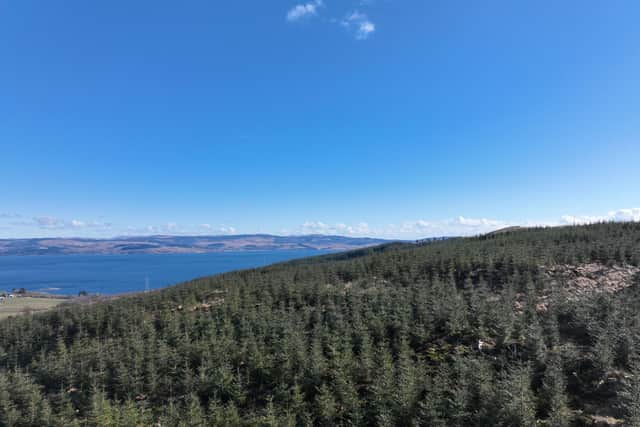Native woodland and commercial forestry groups say conifer forests needed in Scotland after report calling to scrap subsidies
Native woodland and commercial forestry groups have called for there to be continued support for conifer forests in Scotland after a report called for subsidies and tax breaks for the commercial sector to be scrapped.
The report, written by the Royal Society of Edinburgh (RSE), Scotland’s national academy of science and letters, said the tens of millions of pounds in subsidies given to the timber industry should instead be spent on longer-living native forests for climate and biodiversity benefits.
Advertisement
Hide AdAdvertisement
Hide AdIt said governments in the UK were wrong to argue that public subsidies were needed to help plant more, larger conifer forests given their reputation as being largely monocultures.


Jon Lambert, partner of Goldcrest Land & Forestry, said this was, however, incorrect as forests were only allowed a maximum of 65 per cent of any one species. He said he was “appalled” at the report’s findings given “the urgent need to create more timber”.
“We are very good at planting broadleaves,” he said. “However, looking after them is extremely expensive and time and time again we see examples of broadleaf areas in Scotland which have turned into scrubland. Yes, we need financial help to support the management of broadleaf forests, but we also need considerable financial support to ensure a healthy and robust timber industry.”
The Woodland Trust, a charity concerned with creation of and restoring native trees, said it was in Scotland’s interests to support a strong commercial forestry sector.
The charity’s policy manager Simon Ritchie said: “Scotland has plenty of land for both native woodland and for commercial softwood. Indeed, we need both. How schemes are funded up front may well need to be reviewed in the context of falling public grant funding, but it is best for Scotland to have a strong forestry sector with a mix of commercial and conservation management.”


Scottish Forestry said Scotland needed to continue growing a mixture of both productive species and native broadleaves if the country was to tackle climate change and nature loss.
A spokesperson for the public body said it had suggested engaging in the report, but that RSE failed to take up this offer.
RSE, however, insisted Scottish Forestry was asked for responses to an open consultation, which began at the start of the inquiry into public financial support for tree planting in Scotland.
Advertisement
Hide AdAdvertisement
Hide AdAn RSE spokesperson said: “Despite this, Scottish Forestry did not send any response to the consultation. In addition, Scottish Forestry were directly approached by the RSE during the report’s compilation, but did not follow up on opportunities to discuss the preparation of the report.”


Some of the findings in the report said in Scotland, ministers have subsidised forestry by more than £390m over the past decade, with roughly 80 per cent of that spent on commercial conifer plantations. Authors found timber companies and landowners pay no corporation tax on their income from forests; profits from timber sales are tax-free; there is no capital gains tax on the value of the trees, and 100 per cent inheritance tax relief on the forestry property.
The report also said government agencies are not properly enforcing policies which require environmental impact assessments on new forest projects.
Alan McDonnell, at Trees for Life, welcomed the report’s acknowledgment of a “historical lack of funding for woodland creation by natural regeneration”, and its recommendations to redirect forestry funding “to deliver significant positive impact in achieving Scotland’s 2030 and 2045 nature and climate targets”.
Comments
Want to join the conversation? Please or to comment on this article.